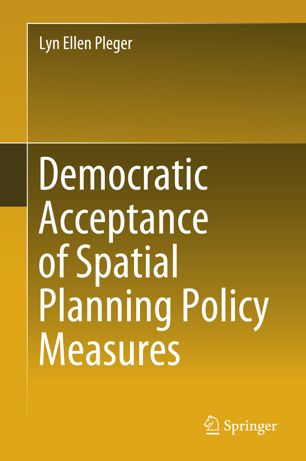

Most ebook files are in PDF format, so you can easily read them using various software such as Foxit Reader or directly on the Google Chrome browser.
Some ebook files are released by publishers in other formats such as .awz, .mobi, .epub, .fb2, etc. You may need to install specific software to read these formats on mobile/PC, such as Calibre.
Please read the tutorial at this link: https://ebookbell.com/faq
We offer FREE conversion to the popular formats you request; however, this may take some time. Therefore, right after payment, please email us, and we will try to provide the service as quickly as possible.
For some exceptional file formats or broken links (if any), please refrain from opening any disputes. Instead, email us first, and we will try to assist within a maximum of 6 hours.
EbookBell Team

4.7
56 reviewsThis book examines the democratic acceptance of spatial planning measures, using Switzerland as a case study. The currently inefficient land use in industrialised countries calls for new spatial planning policies. Yet governments have largely failed to implement innovative policy measures, which may be due to a lack of democratic acceptance. To date, little is known about the democratic acceptance of spatial planning measures. Switzerland offers a promising candidate because of its direct-democratic system, which allows citizens’ preferences for specific policy measures to be directly measured.
In this work, the democratic acceptance of spatial planning instruments is investigated from various perspectives in the form of original empirical studies, which are embedded in an innovative conceptual framework. It demonstrates that not only spatial planning instruments in general, but also incentive-based instruments in particular, generally enjoy high acceptance. This finding is remarkable, considering the fact that efficient land use instruments have only been marginally implemented. Addressing the needs of both academics and land use practitioners in the private and public sector, the book shows that in order to improve the democratic acceptance of spatial planning measures, attention must be paid to their context, content and the means by which that content is provided.